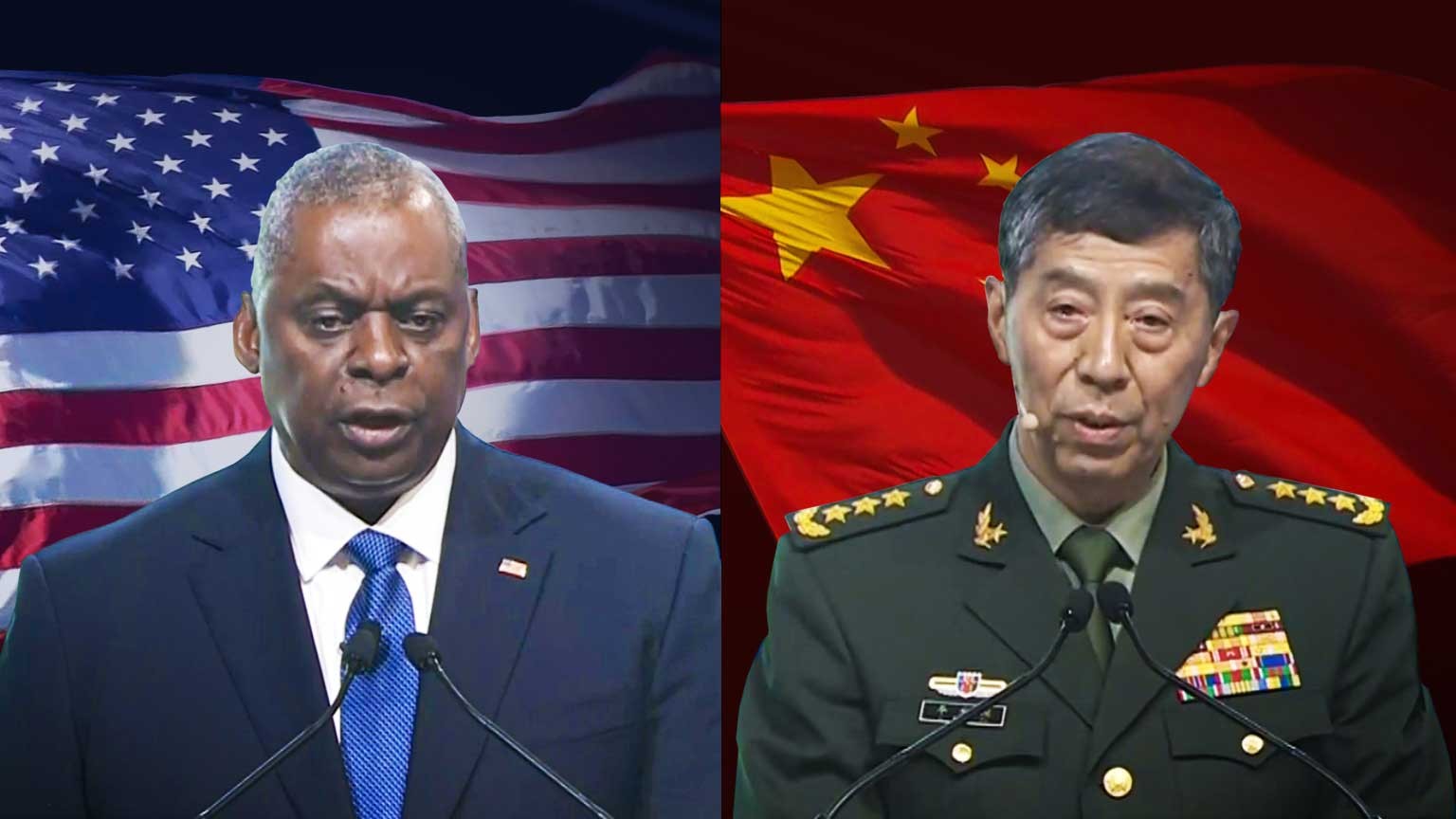Defense officials including US Defense Secretary Lloyd Austin and Chinese Defense Minister Li Shangfu attended Asia's top security meeting.
Ahead of the conference, China had declined a US request for a bilateral meeting between Austin and Li.
The two only spoke briefly during a dinner on the first day of the three-day conference. The Chinese side said they did not hold talks, while the US stated they did not have a "substantive exchange."
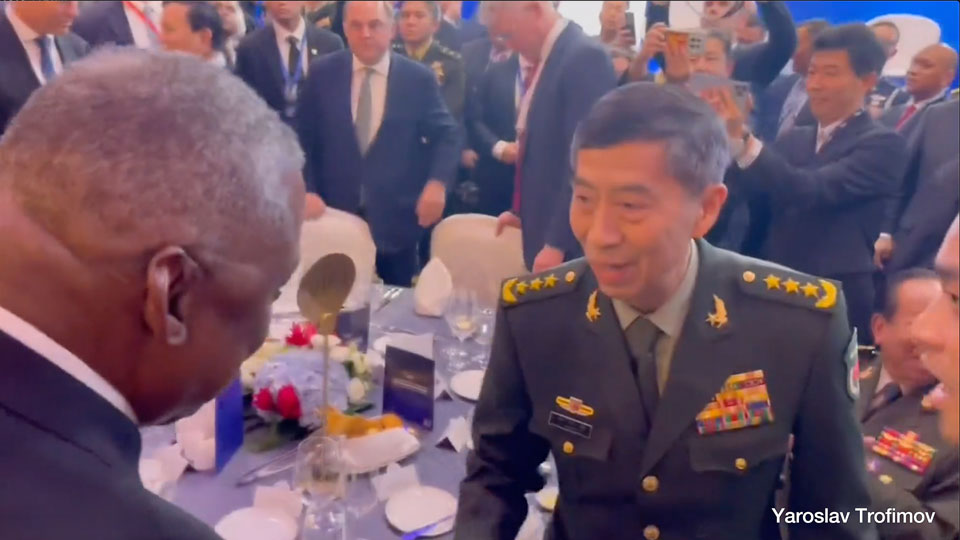
That stands in contrast to the bilateral meetings both the US and China held with other countries, mainly Asian nations including Japan. They discussed issues related to the South China Sea and Taiwan.
Tensions between Washington and Beijing have continued since February when a US military jet shot down a Chinese balloon that had flown over the US mainland.
US seeks engagement with China to avoid conflict
During the security conference, Austin called on China to come to the table to avoid "the misunderstandings and miscalculations that could lead to crisis or conflict."
He said in a speech on Saturday that it is essential for Washington and Beijing to have open lines of communication, especially among their defense officials.
"For responsible defense leaders, the right time to talk is any time. The right time to talk is every time. The right time to talk is now," he said.
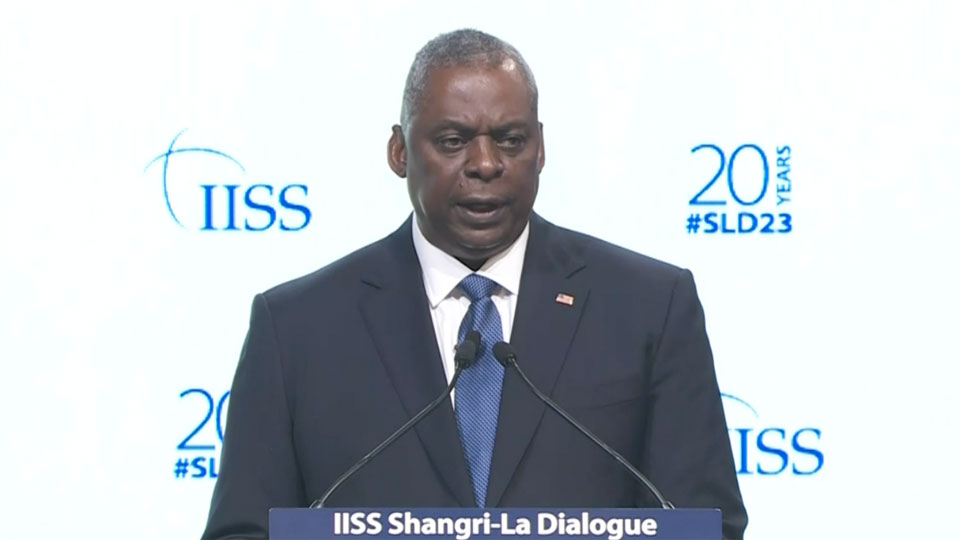
Austin stressed that the US would continue to work with its allies and partners to uphold freedom of navigation and overflight.
He also addressed the tensions surrounding Taiwan.
"The United States remains deeply committed to preserving the status quo there, consistent with our longstanding one-China policy, and with fulfilling our well-established obligations under the Taiwan Relations Act," he said.
He also expressed concern that conflict in the Taiwan Strait would be devastating. He said that deterrence remains strong, and it is his country's job to keep it that way.
Chinese warship close encounter with US destroyer in Taiwan Strait
Meanwhile, the US military says that a Chinese naval vessel sailed across the path of a US destroyer in the Taiwan Strait on Saturday, coming within about 140 meters of the ship in an "unsafe manner."
The US Indo-Pacific Command said that the guided-missile destroyer USS Chung-Hoon and the Royal Canadian Navy frigate were conducting a routine transit through the strait from south to north as part of freedom of navigation patrols. During the passage, a Chinese destroyer executed maneuvers in the vicinity of the US ship.
The US says its ship slowed down to avoid a collision.
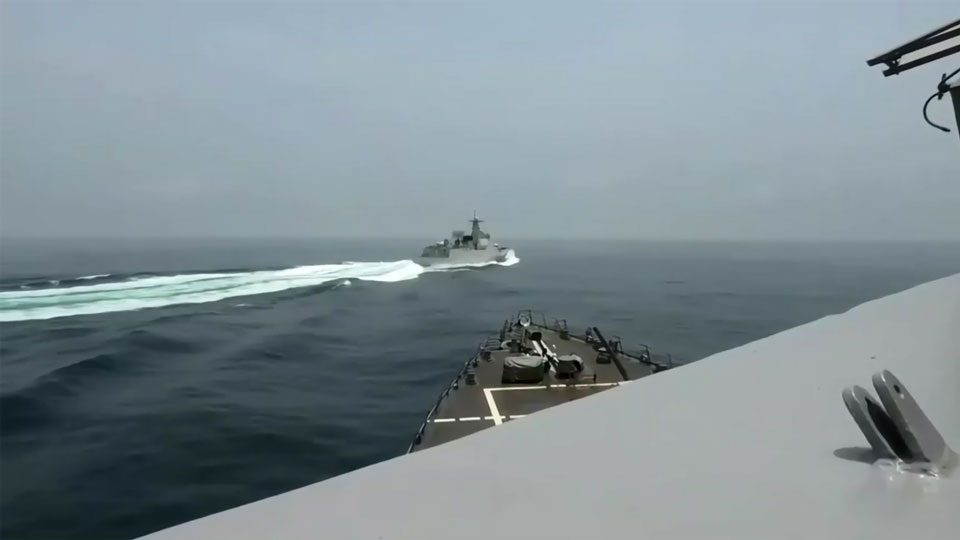
The command criticized the actions of the Chinese vessel, saying they "violated the maritime 'Rules of the Road' of safe passage in international waters."
Canadian Navy Commander Paul Mountford, who was onboard the Canadian vessel, said that he believes China's move was intentional since the transit had been announced over the radio.

China defends encounter
China has responded by criticizing the freedom of navigation patrols, with Chinese Defense Minister Li on Sunday saying that non-regional countries were using them as a "pretext to exercise hegemony of navigation."
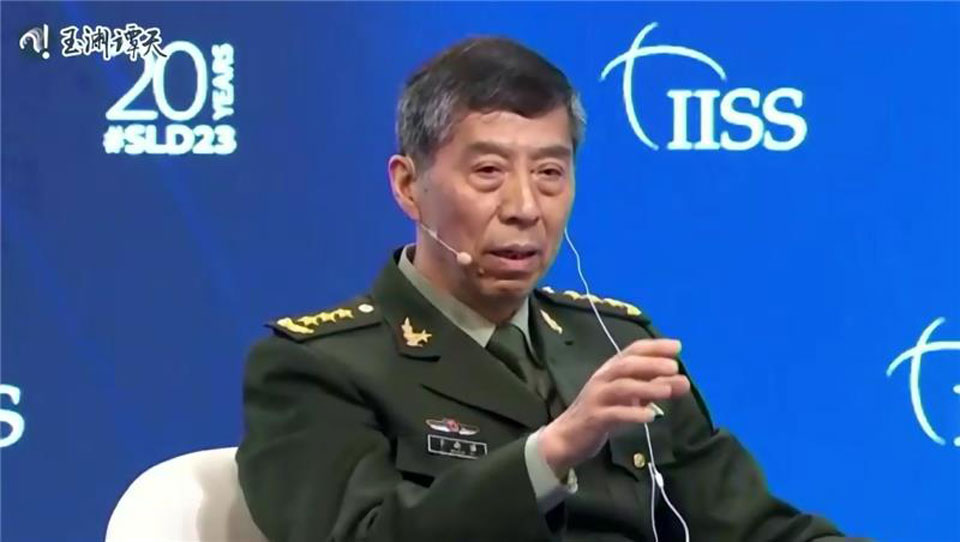
A spokesperson for the Eastern Theater Command of China's People's Liberation Army defended the encounter, saying naval and air forces monitored the situation and it had been handled in accordance with the law and regulations.
The spokesperson added that the command will respond to any threat or provocation and will resolutely safeguard China's sovereignty and security, as well as the peace and stability of the region.
Senior US official visits China
A senior US State Department official arrived in Beijing on Sunday with meetings planned for the week as Washington seeks to boost communication with China.
The US State Department says that Assistant Secretary of State for East Asian and Pacific Affairs Daniel Kritenbrink will discuss "key issues in the bilateral relationship."
He will be joined by the White House National Security Council Senior Director for China and Taiwan Affairs Sarah Beran.
A hotline between the US and Chinese militaries has been cut off since last August, when then-Speaker of the House of Representatives Nancy Pelosi visited Taiwan.
Ties between the countries had appeared set to begin mending. Last month, US President Joe Biden said in Hiroshima that relations would "begin to thaw very shortly."
But when Washington sought a meeting between the US and Chinese defense chiefs at Singapore, Beijing refused.
Kritenbrink's visit to China is likely to include discussions on stabilizing relations, as will an expected future visit by Secretary of State Antony Blinken.
